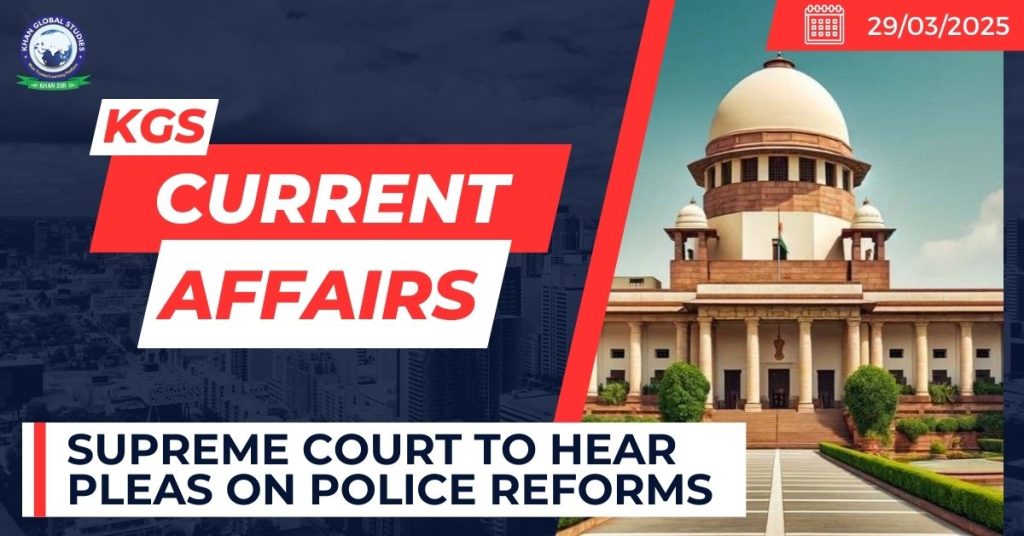Context:
The Supreme Court of India agreed to hear pleas in May 2025 regarding the implementation of its 2006 verdict on police reforms.
Key Highlights of Orders
- Concerns Over Non-Compliance: The Court also expressed concerns about non-compliance by various state governments in following the guidelines set out in the 2006 verdict, particularly regarding the appointment of DGPs.
- Directions on DGP Appointments: The Supreme Court issued directions prohibiting ad hoc or interim appointments to the position of Director General of Police (DGP) by state governments.
Court’s Guidelines for DGP Appointment:
- The Union Public Service Commission (UPSC), in consultation with the state government and other stakeholders, will prepare a list of three senior police officers.
- The state government will then appoint one of these officers as the DGP
Contempt Petition Against Jharkhand Government: In response to allegations, the Bench then directed that a contempt plea be served on the Jharkhand government and listed all pleas for hearing in the week commencing May 5.
The Seven Directives of the Supreme Court (Prakash Singh and N K Singh Case, 2006) to Improve Police Accountability and Performance

Directive 1: Separation of Investigation and Law & Order Functions:
- The court recommended separating police functions related to law and order (an executive function) and criminal investigation (a part of the criminal justice system).
Directive 2: Appointment of DGP:
- Ensure that the DGP is appointed through a transparent process and secure a minimum tenure of two years
Directive 3: Minimum Tenure for Police Officers:
- Ensure that other police officers on operational duties (including Superintendents of Police in-charge of a district and Station House Officers in-charge of a police station) are also provided a minimum tenure of two years.
Directive 4: State Security Commission (SSC):
- Ensure that the state government does not exercise unwarranted influence or pressure on the police
- Lay down broad policy guidelines and
- Evaluate the performance of the state police
Directive 5: Police Establishment Boards:
- The court also mandated the establishment of a Police Establishment Board for handling transfers, promotions, postings, and other service-related matters for police officers below the rank of DSP.
Directive 6: Police Complaints Authority:
- Set up a complaint’s authority at both the state and district levels.
- To investigate complaints against officers of and above the rank of SP in cases of serious misconduct, including custodial death, grievous hurt or rape in police custody.
Directive 7: National Security Commission:
- To ensure the selection and tenure of Central Police Organisation chiefs and other top police officers at the Union level with a minimum tenure of two years.
Significance of the case:
- This case highlights ongoing efforts to reform India’s police system and ensure accountability, transparency, and independence from political influence.
- The successful implementation of these reforms is seen as a critical and much-needed reform to improve governance and strengthen the rule of law in India.

